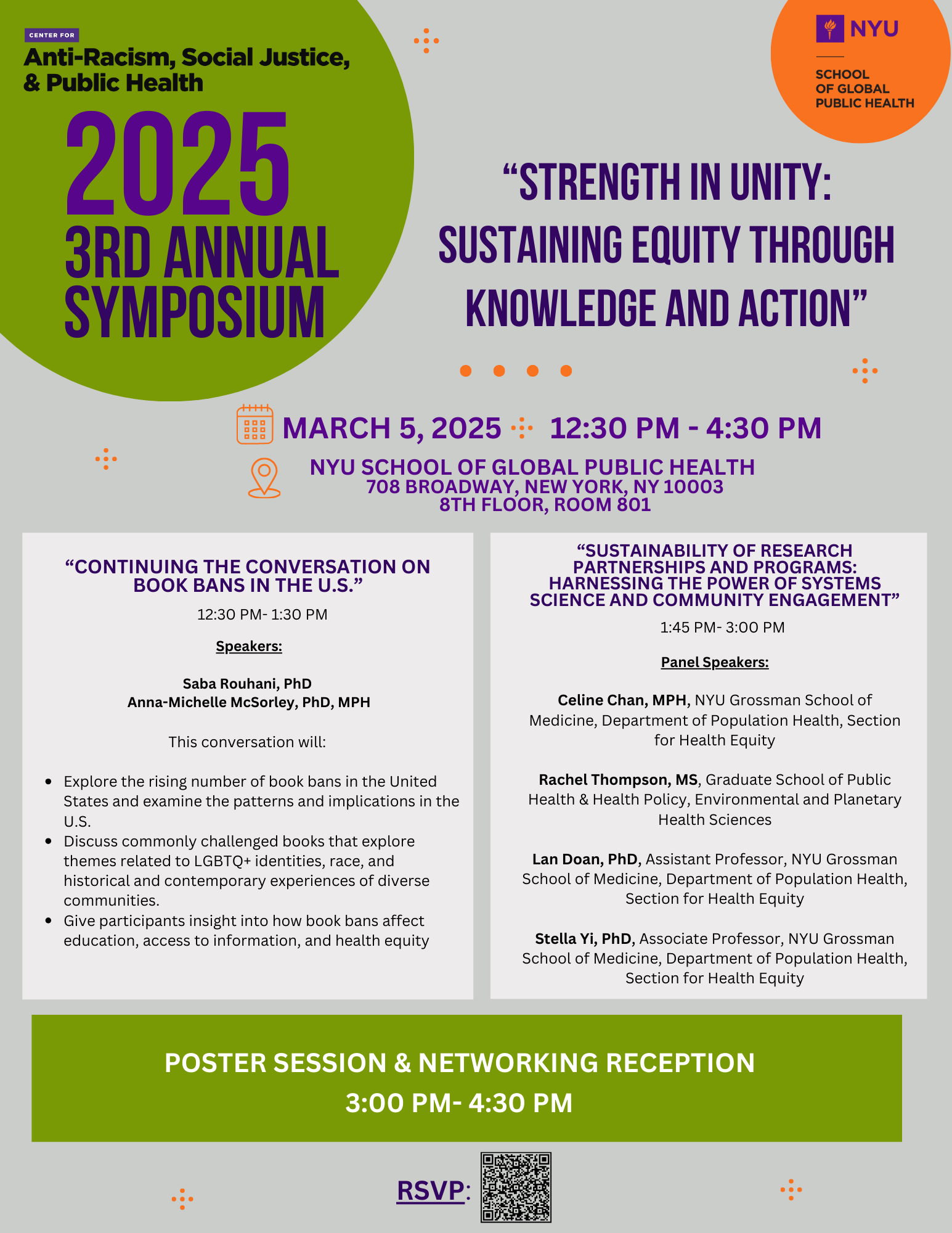The Center for Anti-racism, Social Justice, & Public Health is hosting its third annual symposium, "Strength in Unity: Sustaining Equity Through Knowledge and Action". This year brings together researchers, advocates, leaders to explore how knowledge and collaboration can drive lasting health equity and social justice. Through insightful discussions, research presentations, and interactive sessions, participants will examine the power of informing communities, creating sustainable partnerships, and evidence-based action in dismantling structural inequities. Join us as we continue the conversation.

March 5, 2025
-
Welcome Lunch- 12:00 PM
Lunch will be available before we begin our first session.
-
Continuing the Conversation on Book Bans in the U.S.- 12:30 PM- 1:30 PM
Speakers:
Saba Rouhani, PhD and Anna-Michelle McSorley, PhD, MPH
This conversation will:
- Explore the rising number of book bans in the United States and examine the patterns and implications in the U.S.
- Discuss commonly challenged books that explore themes related to LGBTQ+ identities, race, and historical and contemporary experiences of diverse communities.
- Give participants insight into how book bans affect education, access to information, and health equity
-
Sustainability of Research Partnerships and Programs: Harnessing the Power of Systems Science and Community Engagement- 1:45 PM- 3:00 PM
Panel Speakers:
Celine Chan, MPH, NYU Grossman School of Medicine, Department of Population Health, Section for Health Equity
Rachel Thompson, MS, Graduate School of Public Health & Health Policy, Environmental and Planetary Health Sciences
Lan Doan, PhD, Assistant Professor, NYU Grossman School of Medicine, Department of Population Health, Section for Health Equity
Stella Yi, PhD, Associate Professor, NYU Grossman School of Medicine, Department of Population Health, Section for Health Equity
-
Poster Session & Networking Reception- 3:00 PM- 4:30 PM
This is an opportunity to network with all our speakers and others in attendance. This session will also feature poster projects focused on anti-racism, social justice, and public health.
